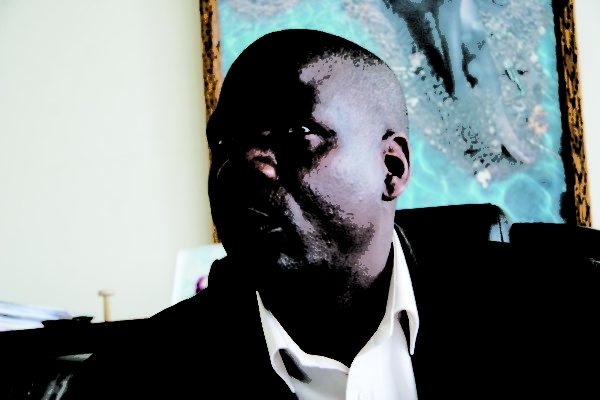
Zimbabwe faces a gloomy outlook with more job losses if nothing is done to arrest the obtaining economic crisis, labour and economists have warned.
BY MTHANDAZO NYONI
The economy performed dismally in the first half of 2016 —the worst since the introduction of the multi-currency regime in 2009. manufacturers are reeling under high production costs, lack of export competitiveness, company closures as well as domestic consumer resistance.
That period saw 229 companies shutting down, leaving hundreds of people jobless, statistics from the Zimbabwe Congress of Trade Unions (ZCTU) have shown.
This dark period also saw banks introducing withdrawal limits to mitigate cash challenges while government, for the first time, failed to pay civil servants on time.
The period has been characterised by mass protests as citizens reacted to the deteriorating economic situation in the country.
The current situation, economic analyst John Robertson said, pointed to a tough road ahead.
- Chamisa under fire over US$120K donation
- Mavhunga puts DeMbare into Chibuku quarterfinals
- Pension funds bet on Cabora Bassa oilfields
- Councils defy govt fire tender directive
Keep Reading
“By the end of the year, many more people will have lost their jobs and government revenues will be too depressed to meet salary demands,” Robertson warned.
ZCTU secretary-general Japhet Moyo said the “outlook for the end of year is very gloomy”.
“The liquidity crunch lowered production in most entities. Workers have been given short working weeks or have lost their jobs altogether. We have been seeing the downward trend. Things are worse today than they were three months ago,” he said.
“The number of people who have not been paid for the past six months is increasing. Salary arrears are still persisting.”
Confederation of Zimbabwe Industries (CZI) president Busisa Moyo said manufacturing output “continues to be depressed due to the weak agricultural output and raw material payment problems due to depletion of nostro balances, high borrowing costs and the absence of appropriate funding structures”.
Moyo said CZI’s manufacturing sector survey would be out in the next 90 days but “we don’t expect total output or capacity utilisation to have grown across the board although a few sectors may have experienced growth”.
Robertson said industry should be organised and disciplined about costs and persuade trade unions to help everyone to reduce costs by reaching agreements on all wages and prices.
“On half their current wages, workers could manage, but only if prices, rents, bus fares, school fees, Zesa and telephone charges, food and fuel prices were also cut by half. Zimbabwe needs to do this because it is using a US dollar that Zimbabwe cannot devalue,” he said.
He said at the US dollar costs and prices in force in Zimbabwe today, the country could not import anything people wanted for about half the cost of making it here.
“That kills our hopes of exporting those products. We are the ones who got our sums wrong and only we can correct our mistakes. The rest of the world doesn’t care that we’ve priced ourselves out of our own markets or if we struggle on with 80% unemployment. We have to care. Let’s start now!’ he said.
Robertson said during the first three months of the year, the repeated threats to shutdown companies without indigenisation compliance certificates resulted in businesses suspending all plans with cost implications and some made the decision to close down.
Early this year, Indigenisation minister Patrick Zhuwao threatened to withdraw operating licenses from foreign-owned companies that did not comply with the controversial indigenisation policy.
By March, Robertson said, liquidity was already tight and delayed payments to creditors and employees, which had affected retail sales since the last months of 2015, began to impact severely on company profits as well as government’s tax revenues.
He said the introduction of an import priority list by the central bank to manage the flow of cash outside the country lowered levels of business activity.
“All the evidence suggests that the economy declined in the first half of the year. So government’s repeated claims that economic growth was achieved are highly suspect,” Robertson said.
He said a large proportion of the population was now dependent on support from family members working in South Africa and other countries. He said this support often arrived in the form of goods for resale.
As such, the restrictions on imports added to the hardships experienced by many dependent families and have resulted in political unrest.
Consumer Council of Zimbabwe Matabeleland regional manager Comfort Muchekeza said consumers were suffering from low disposable income due to the failure by employers to pay employees.
Analysts said government’s attempts to restore the comatose economy were futile because it was treating the symptoms and not the causes. He said the recently introduced command agriculture was bound to fail.
“Regulations, controls, permits, licences and favours from ministers are the problem, not the solution.
Government’s role should be to facilitate, not regulate. Government should work hard to make Zimbabwe an attractive investment destination. At present, it is one of the worst in the world. They should start fixing that now,” Robertson said.
If nothing was done to encourage money to flow into Zimbabwe, Robertson said the protests would be more aggressive accelerating the decline in economic performance.
“These (protests) seem likely to worsen,” he warned.
Moyo said the support of locally produced commodities would make a big difference to employment and output as local manufacturers seek to satisfy local demand.
“Growth of support for small to medium scale enterprises, contract farming and other linkages will be vital for co-emergence and inclusive economic participation,” the CZI boss said.












